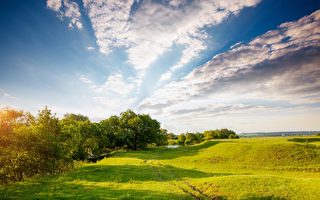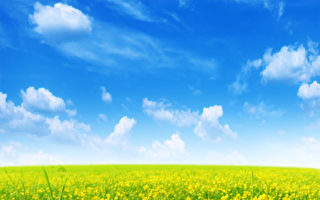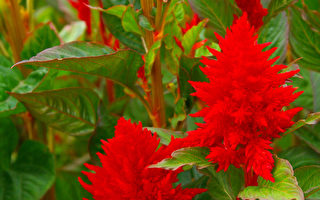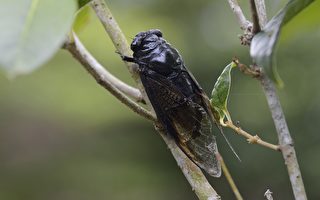编者按:该诗志为马尔他著名诗人Patrick J. Sammut所创办,以马尔他文及英文印行,发行颇广泛,遍及全世界。此次该刊于9月初出版,以两页刊出对诗人许其正的专访,简介部分为马尔他文,专访部分为英文,另一页以英文刊登许其正的定位一诗。本刊特加中译刊出。定位一诗则附许氏中文原诗。
AN INTERVIEW WITH POET HSU CHICHENG:
Hsu Chicheng, li twieled fl-1939, huwa poeta Ċiniż kontemporanju. Huwa jikteb u jittraduċi, nattiv tal-kontea Pingtung fit-Taiwan; kiseb Baċellerat fil-Liġi mill-Università Soochow; aktar tard kompla l-istudji tiegħu fl-Istitut tal-Edukazzjoni tal-Kaohsiung Normal University. Kien editur, ġurnalist, ġudikatur militari, għalliem u direttur part-time, u membru ewlieni u għalliem gwida ta’ għadd ta’ organizzazzjonijiet tal-arti u l-letteratura. Għallem għal 33 sena u llum huwa rtirat. Sa minn żmien tfulitu kellu għal qalbu l-letteratura u l-kitba.
Beda jippubblika xogħlijietu sa mill-1960, bosta minnhom poeżiji u proża, fejn ipinġi art twelidu, ħajja u natura idillika, u jkanta u jfaħħar in-naħa s-sabiħa tal-esperjenza umana. Dan jagħmlu biex iħeġġeġ lill-bnedmin biex jingħaqdu flimkien u jagħmlu ħwejjeġ tajbin. Ippubblika ħdax-il ġabra ta’ poeżiji, inkluż Half Sky Birds, u oħrajn ippubblikati fl-ilsna Ċiniż-Ingliż, Ċiniż-Grieg, Ċiniż-Mongolu, u Ċiniż-Ingliż-Ġappuniż. Ippubblika wkoll disa’ ġabriet ta’ proża, inkluż Excellent Seedling, flimkien ma’ żewġ traduzzjonijiet. Ħafna mill-poeżiji tiegħu ġew tradotti f’bosta ilsna u inklużi f’għadd ta’ antoloġiji poetiċi. Ix-xogħlijiet ta’ proża u teatrali rebbħuh għadd ta’ premji, u ismu huwa inkluż f’pubblikazzjonijiet bħal-lista ta’ Celebrities of The Republic of China, Who’s Who? u 2000 Outstanding Intellectuals of the 21st Century, it-tnejn ippubblikati miċ-Ċentru Internazzjonali tal-Bijografija f’Cambridge, l-Ingilterra. Kiseb dottorati onorarji fil-qasam tal-letteratura, fosthom mill-U.S. World Academy of Arts and Culture, u ngħata l-premju kommemorattiv mill-Klabb Letterarju “Xasteron”, fil-Greċja, u l-premju onorarju Naji Naaman fil-Lebanon. Ġie nnominat għall-Premju Nobel fil-Letteratura, 2014.
Hsu ChiCheng illum hu konsulent part-time tal-“Large Ocean Quarterly”, editor taċ-“Chinese Modern Poetry Quarterly”, l-editur ewlieni ta’ “The World Poets Quarterly”, u president tal-fergħa f’Taiwan tal-Cai Hong Ying Pen Society, fl-Awstralja. Huwa membru tal-International Writers and Artists Association, u membru onorarju tal-Klabb Letterarju “Xasteron”, fil-Greċja.
Describe in brief your native country Pingtung County, Taiwan.
My native country Pingtung County is in the south of Taiwan. The residents are almost peasants, especially of the village I born and grew up. It doesn’t above 10 families. We plant paddy, beans, vegetables, bamboo, sugar cane and fruits etc. It’s a paradise out of the mortal world in my mind.
Can you share with us some of the memories or episodes you recall from your childhood days?
I’m happy and free in my childhood days. I often bare myself to play and run all over my village and field around it. I then went to graze the cattle and worked in the field as well as played games with child friends when I’m elder. There full of sunshine. I enjoy the pleasure of life with the fragrance of the soil and sunshine, trees and grasses as well as the insects, birds etc..
How was your 33-year old teaching career? Did this contribute in making you a better human being and a better poet?
I went to be a teacher after finished my university education. Teaching career is a great business. A teacher can contact many younger and guide them to be the grace person and have some more achievements. That interested and brought me joyful. At the same time, I learned from them many things, just as the vividness that made me feel young.
Which were your childhood favourite readings? Which authors/books/poets did you read and love later on in your life?
I almost haven’t read many books during my childhood. However, I liked to read many books after 17 of age. There are many books I love to read, for instant, Analects of Confucius, Mencius, Laozi, Zhuangzi etc. of the ancient works of China, prose verse collections as Stray Birds, Fireflies by Rabindranath Tagore, The Platero Y Yo by Juan Ramon Jimenez, and the works of Johann Wolfgang Von Goethe etc..
You give great importance to nature and the good in human beings in your poems? Why is this? How is this more important today than in older days?
Since I born and grown in the countryside, I love nature inborn. So I give great importance to nature and good in human beings in my poems as well as my prose. I believe all things in the universe are equal and will coexist. Otherwise, I hope human beings must live with peace. I pray all human beings be good in their mind. This point of view is more important today than in old days.
Which style do you prefer: traditional verse or free verse?
I prefer to free verse.
What do you say about the appeal to the different senses, colour and sound in poetry?
No matter what senses, colour and sound in poetry, if a poem touches me.
诗人许其正专访
许其正简介
许其正,中国当代杰出的诗人、作家、翻译家。台湾屏东县人,1939年生,东吴大学法学士,高雄师范大学教研所结业;曾任编辑、记者、军法官、教师兼部分文学社团负责人、指导教师等,以担任教师时间最久,从五专、高职到国中,共计33年,其间并兼任教务主任13年;现在已退休。
许氏自小对文艺及写作具有兴趣,于1960年开始发表作品,以新诗与散文为主,多写乡土、田园、大自然,歌颂人生光明面,勉人奋发向上;已出版《半天鸟》等12本新诗集(其中4本为中英对照,2本为中希对照,1本为中蒙对照、1本为中英日对照)、《穟苗》等8本散文集及2本翻译;作品被译成英文、日文、希腊文、蒙古文、希伯来文、俄文、法文、葡萄牙文与马尔他文,被选入近百种选集,诗、散文及剧本曾多次得奖,列名《中华民国现代名人录》、英国康桥世界名人传记中心出版《世界名人录》及《21世纪世界2000名杰出智慧人物名录》,获国际诗歌翻译研究中心颁发荣誉文学博士学位及2004年最佳国际诗人,美国世界文化艺术学院颁发荣誉文学博士,国际作家艺术家协会颁发荣誉人文博士及英译中最佳翻译,希腊札斯特朗文学会颁发纪念奖,黎巴嫩耐吉.阿曼文学奖颁发诗歌荣誉奖,另被提名为2014年度诺贝尔文学奖候选人。
他现在专事阅读与写作,作品以中、英、日、希腊、蒙古等语文,在国内外报纸、杂志发表,并兼任《大海洋诗杂志》顾问、《华文现代诗》编委及《世界诗人》混语诗刊(原则上为中英双语,必要时增加其他国家如法、意、俄、希腊、拉丁等语)特约总编,澳洲彩虹鹦笔会台湾分会会长,国际作家艺术家协会会员,希腊札斯特朗文学会荣誉会员。
专访部分
请简单叙述一下你的故乡台湾屏东县。
我的故乡屏东县是在南台湾。居民几乎是农人,尤其我出生长大的村子。它没超过十户人家。我们种稻米、豆子、蔬菜、竹子、甘蔗和水果等。在我心中,它是世界上的一个天堂。
你能让我们分享你童年回忆里的一些记忆和插曲吗?
我童年时很快乐而且自由自在。我经常打赤脚跑遍玩遍我的整个村子和附近田野。然后当我稍长,我就去放牛,到田里工作,并和童伴们玩各种游戏。那里满是阳光。我欣喜地享受泥土和阳光的芳香,草木以及诸多昆虫等等……。
三十三年的教学生活如何?这对你成为一个更完善的人和诗人有助益吗?
我于完成大学学业就去当了老师。教学生涯是一件大事业。一名教师能接触许多年轻人,引导他们成为有用的人,有所成就。那对我很有趣,带给我喜悦。同时,我向他们学到好些事,譬如学到活力,使自己年轻。
你小时最喜爱的读物是什么?其后你阅读并喜爱哪些作者、书本和诗人?
童年时我几乎没读什么书。但是,十七岁后我读了很多书。有许多书我喜爱去读,例如中国的古典孔子的论语、孟子、老子、庄子等,泰戈尔的散文诗“漂鸟集”、“萤”、希梅泥兹的“布拉特罗与我”以及歌德的作品等。
你的诗里很注重大自然和人类的良善?为什么?在现代,这比旧时代重要吗?
因为我在乡间农村出生长大,我天生喜爱大自然。所以我在诗和散文中给予大自然和人性的良善很大的地位。我相信宇宙万物生而平等且相互共存。另一方面,我希望人类和平相处。我祈望人类内心都良善。这个观点现代比古代更重要。
古典诗和自由诗,你比较喜欢哪个?
我比较喜爱自由诗。
诗里的意义、色彩和声音,哪一个比较吸引你?
不管诗里的意义、色彩和声音,只要能感动我都喜爱。
定位诗一首
ORIENTATION
After their death, no emperors and ministers are immortal
Those who are earnest and do not seek fame, get their fame
Why is the reason behind?
Is it the Creator is joking on us?
Who can set the orientation of a person?
He who is wealthy and powerful?
The powerful with their power
The wealthy with their wealth
Thus can they set their orientation?
Or who can set the orientation of a person?
Geomancers?
Under special invitation
They choose a valuable land with a good geomantic omen
But can they set the orientation of a dead person?
Who can set the orientation of a person?
HSU CHICHENG
Iċ-Ċina
定位
帝王将相没几个死后能够不朽
真正付出者不刻意营求却能留芳
这是为什么?
难道是造物在故意开玩笑?
谁能为一个人定位?
有权势有财富的人吗?
有权势的人以其权势
有财富的人以其财富
他们这就能为自己定位了吗?
不然谁能为一个人定位呢?
风水师傅吗?
他们专门接受委请
以罗盘选取风水宝穴
这就能为死者定位了吗?
谁能为一个人定位?@
责任编辑:林芳宇












